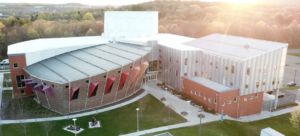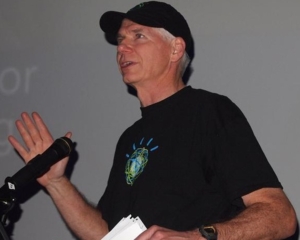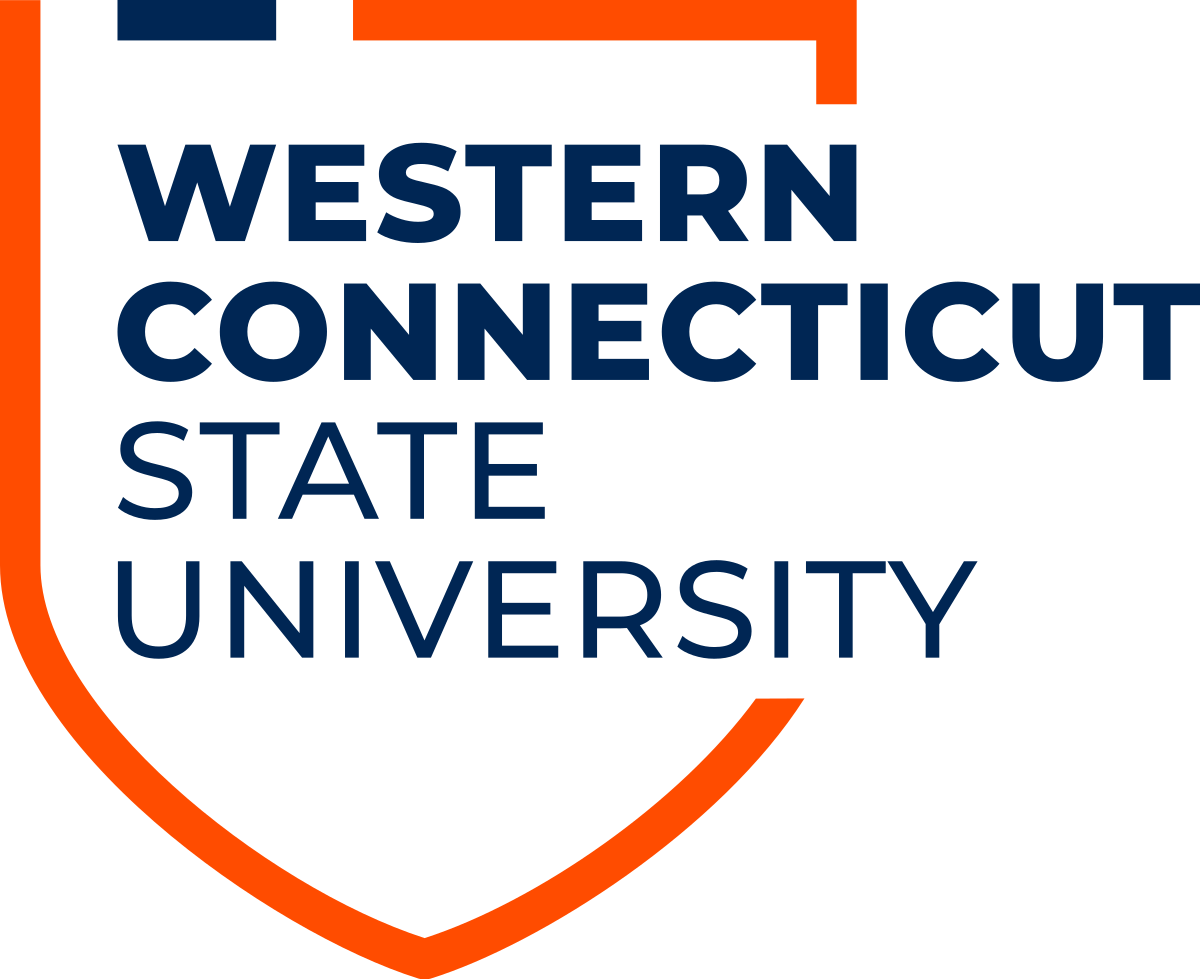
THE IMPACT OF ARTIFICIAL INTELLIGENCE ON HIGHER EDUCATION
3rd SNAS Interdisciplinary Research Conference
Western Connecticut State University (WCSU), Danbury, CT
October 11, 2024
CLICK HERE FOR THE CONFERENCE PROGRAM!!!
Nature and Scope of the Conference:
Artificial intelligence (AI) is revolutionizing various aspects of higher education, from teaching and learning to administrative operations and student support services. This conference aims to explore AI’s multifaceted impact on higher education institutions worldwide and its implications for students, faculty, administrators, and stakeholders. The 2024 SNAS Interdisciplinary Research Conference invites researchers, practitioners, and thought leaders to submit conceptual and empirical research paper abstracts and panel discussions on, but not limited to, the following topics:
- AI-enhanced teaching and learning methodologies
- Personalized learning experiences and adaptive learning technologies
- AI-driven innovations in educational assessment and feedback
- Ethical considerations and challenges in the use of AI in higher education and various fields
- How AI revolutionizes healthcare delivery, diagnostics, treatment planning, and patient care.
- The role of artificial intelligence in cybersecurity, threat detection, fraud prevention, and ensuring the security and integrity of digital systems.
- Understanding the broader societal implications of AI adoption, including its impact on social dynamics, inequality, accessibility, and the human experience.
- The impact of AI on employment, job displacement, reskilling, workforce development, and the future of work in the age of automation.
- How AI shapes government policies, public services, law enforcement, national security, and regulatory frameworks?
- Future trends and opportunities for AI integration in higher education
- The role of higher education in preparing young minds for the future
- How should social research and evaluation frameworks evolve in the age of automation and AI?
- What are the responsibilities of the business world in ensuring that technological advancements translate into a more sustainable future?
Keynote Address: Rick Lawrence, Ph.D., “From Search to Generative AI”

Rick Lawrence received his B.S. from Stanford University in Chemical Engineering and his Ph.D. from the University of Illinois in Nuclear Engineering. His career has evolved from nuclear science to machine learning to quantitative finance, and most recently, to COVID data science.
Dr. Lawrence’s initial research was in computational physics, first in the Applied Physics Division of Argonne National Laboratory, and then in the Nuclear Science Department at Schlumberger-Doll Research. He joined IBM Research in 1987, where his work evolved from high-performance computing algorithms to machine learning. He held a number of management positions at IBM Research, most recently as Distinguished Research Staff Member and Senior Manager, Machine Learning & Decision Analytics.
From 2016 to 2019, Dr. Lawrence was President of PCIX, Inc, a New York City VC-funded startup that used machine learning to extract quantitative insight on the relationship between private-equity transactions and the performance of public markets. Starting in 2020, he served on the Ridgefield COVID-19 Task Force, and discussed COVID data science and its implications for public policy on numerous local Cable TV shows and other public forums. More recently, Dr. Lawrence has given a series of general-audience lectures and interviews on generative AI and ChatGPT in particular. Dr. Lawrence has published over 100 technical papers spanning computational neutron transport methods, high-performance computing, data mining, and machine learning. He is a member of the Phi Beta Kappa, Tau Beta Pi, and Phi Kappa Phi Honor Societies.
Opening Remarks: Stephen Hegedus, Ph.D., Interim Provost and Vice President for Academic Affairs, Western Connecticut State University

Stephen J. Hegedus is the Interim Provost and VP of Academic Affairs at Western Connecticut State University. Previously he was the Dean of Education at Southern Connecticut State University (2014-2024), Full Professor of Mathematics and Mathematics Education at the University of Massachusetts Dartmouth and Research Fellow and Lecturer at the University of Oxford, UK. He is also the founding Director of the Kaput Center for Research and Innovation in STEM Education, a University Center at UMass Dartmouth. His PhD in Mathematics Education was from the University of Southampton, UK. He has been the PI/Co-PI of various NSF-funded and US Department of Education (IES)-funded projects acquiring over $20m in funding including private foundations. His present work focuses on policy work to close the achievement gap in mathematics including the use of dynamic software environments and multimodal technologies. He was awarded the prestigious UMass Scholar of the Year award in 2009 has published over 100 peer review articles and books and has supervised several Doctoral dissertations nationally and internationally. In 2018-2019, he was an American Council on Education (ACE) Fellow shadowing the President of URI and his senior leadership team.
Conference Executive Committee
- Hasan T. Arslan, Professor of Criminal Justice, Western Connecticut State University, arslanh@wcsu.edu
- Omer Topaloglu, Professor of Marketing, Fairleigh Dickinson University, otopaloglu@fdu.edu
- Sumeyra Tek, Assistant Professor of Physics, Texas Lutheran University, stek@tlu.edu
- Esra Akbas, Assistant Professor of Computer Science, Georgia State University, eakbas1@gsu.edu
- Murat Cankurt, North Carolina A&T State University, mcankurt@ncat.edu
- Selcuk Acar, Associate Professor of Educational Psychology, University of North Texas, selcuk.acar@unt.edu
Submission Guidelines:
SNAS has a place for every well-developed topic, traditional or non-traditional, related to any theme-related area of academic research. Empirical, conceptual, case-based, and review research projects are all welcome. Student submissions are encouraged. The abstract submissions must be a maximum of 300 words and include the following elements: Research Motivation, Key Contributions, and Implications. Please clearly indicate the social implications of your research. Enter the author information in the registration form and remove all identifying information from the Word attachment. All abstract submissions will go through a blind review process. Please do not refer to the author(s) in the abstract. Hybrid option will be available. Online presentation sessions will be scheduled. For your presentation to be scheduled in the conference program, at least one author must become a SNAS member before the registration deadline.
Abstract submission deadline: September 1
Acceptance notification date: September 15
Presenter registration deadline: September 22
Please submit abstracts here! (Google account required)
Location:
Western Connecticut State University (WCSU) changes lives by providing all students with a high-quality education that fosters their growth as individuals, scholars, professionals, and leaders in a global society. To achieve this, WCSU
- Offers undergraduate and graduate programs that weave together liberal arts and professional education and instill a desire for life-long learning.
- Sustains a vibrant, inclusive campus that connects individuals through co-curricular programs, cultural events, and service to the community.
- Attracts student-centered faculty who are passionate teachers and accomplished scholars.
- Establishes partnerships that create opportunities for internships, research, and experiential learning.
Western Connecticut State University – Danbury campus is conveniently located in the suburban Connecticut town of Danbury. A special conference rate of $159 is available at the Maron Hotel & Suites, 42 Lake Ave. Ext, Danbury, CT 06811. The hotel is within walking distance from the WCSU campus. Continental breakfast is included in the rate. Please use this link for reservations and enter the discount code “SNAS”. The reservation dates are October 10th and 11th, with limited rooms available for those days. The hotel offers two types of suites, each capable of accommodating multiple occupants. Attendees interested in sharing a room with a colleague can reserve a single room and split the cost accordingly. The hotel is
- 1 hour and 45 minutes away from JFK airport in NY
- 2 hours away from Newark NJ Liberty International
- 3 hours and 15 minutes away from Boston Logan International.
Participants and guests are advised to use a rental car to reach the hotel. There is free parking at the hotel. Downtown Danbury and nearby towns are within 10-15 minutes drive away.
Registration Fee and Payment:
At least one author must become a SNAS member to make a presentation. Membership benefits include receiving periodic email newsletters, discounted/waived registration fees for annual SNAS events, and voting rights in executive committee elections. Current SNAS members whose memberships expire after October 11 can present at the conference free of charge if their abstract submissions are accepted. Standing SNAS members are also able to attend the conference as an audience. All other participants must become members to attend the conference.
- Annual SNAS Student Membership – $50
- Annual SNAS Non-Student Membership – $100
Click here to fill out the Conference Registration (SNAS membership) form!
Pay with PayPal (or Credit Card)
1- Login PayPal Account
2- Click PayPal settings gear icon
3- Click Payments
4- Click Manage automatic payments
5- Select the subscription
6- Click Cancel

